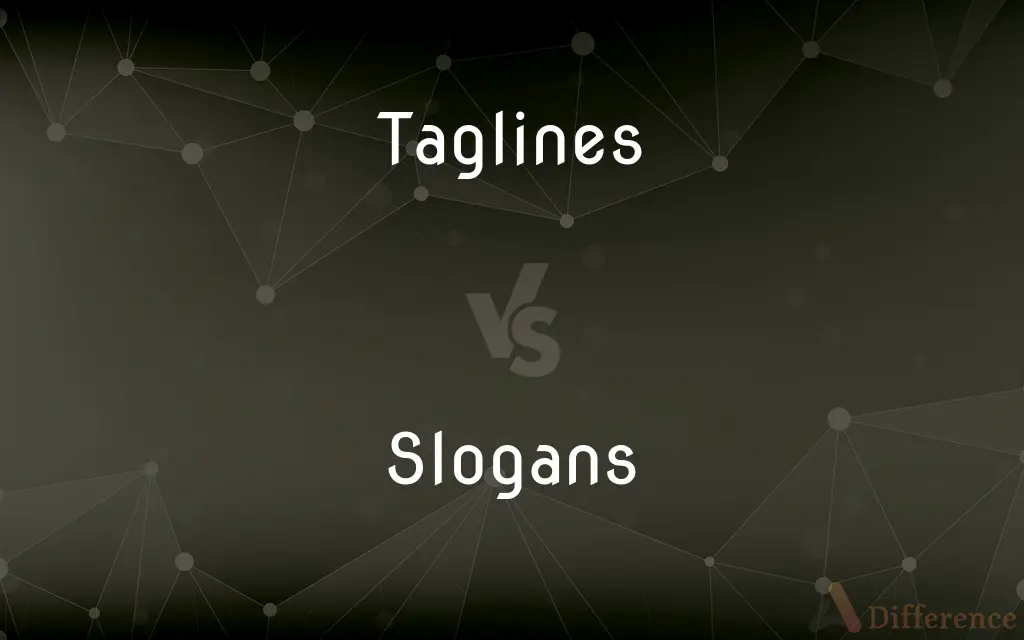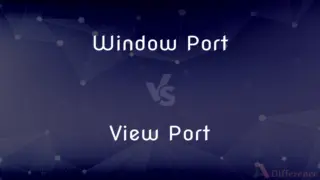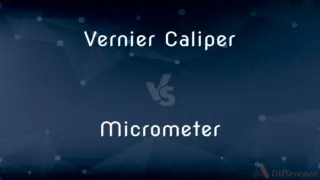Taglines vs. Slogans — What's the Difference?
Edited by Tayyaba Rehman — By Fiza Rafique — Published on December 13, 2023
Taglines are consistent phrases representing a brand's essence, while Slogans are catchy phrases often used for specific campaigns or promotions. Both serve to communicate and enhance brand image.

Difference Between Taglines and Slogans
Table of Contents
ADVERTISEMENT
Key Differences
Taglines represent a brand's identity, encapsulating its mission, vision, or values in a concise manner. Slogans, meanwhile, are crafted for specific marketing campaigns, capturing the essence of a particular product or service offering, often being more flexible and variable than taglines.
A brand's tagline tends to remain unchanged for long durations, ensuring consistent brand messaging and recognition. Slogans, conversely, can change with different advertising or marketing initiatives, adapting to the goals of that particular campaign.
While taglines provide an overarching brand message that resonates with its core identity, slogans aim to be persuasive, motivating consumers to engage with a specific product, service, or cause. This makes slogans especially crucial for new product launches or awareness campaigns.
An effective tagline often becomes synonymous with the brand itself, making it instantly recognizable. On the other hand, memorable slogans tend to create a buzz, prompting discussions and often becoming part of popular culture for the duration of the campaign.
Although both taglines and slogans aim to leave a lasting impression, taglines focus on long-term brand association, whereas slogans emphasize immediate action or response, given their campaign-specific nature.
ADVERTISEMENT
Comparison Chart
Purpose
Represent a brand's core identity
Crafted for specific campaigns or promotions
Duration
Generally remain consistent over time
Change with different campaigns
Association
Synonymous with the brand itself
Associated with a specific product, service, or campaign
Emphasis
Brand's mission, vision, or values
Persuasion, motivation, or action
Cultural Integration
Can become an integral part of brand recognition over the long term
Often integrate into popular culture during the campaign
Compare with Definitions
Taglines
A consistent phrase representing a brand's essence.
Nike's tagline, Just Do It, encapsulates its motivating brand identity.
Slogans
A short-term descriptor for promotions or products.
Snap! Crackle! Pop! was a slogan emphasizing Rice Krispies' uniqueness.
Taglines
A statement of brand identity and values.
Disney's tagline The Happiest Place On Earth speaks of joyful experiences.
Slogans
A tailored statement highlighting a campaign's essence.
Share a Coke was a slogan that turned Coca-Cola bottles into personalized gifts.
Taglines
An enduring phrase linked to a brand's reputation.
McDonald's tagline, I'm Lovin' It, resonates with its global customer base.
Slogans
A catchy phrase for a specific campaign.
The slogan Got Milk? promoted milk consumption.
Taglines
A verbal emblem of a company's ethos.
BMW's tagline The Ultimate Driving Machine highlights its premium positioning.
Slogans
A persuasive phrase urging consumer engagement.
Can You Hear Me Now? became a notable slogan for Verizon's network strength.
Taglines
A long-term descriptor for a company.
Apple's tagline, Think Different, underscores its innovative approach.
Slogans
A memorable line encapsulating campaign goals.
Red Bull Gives You Wings underscores the energy drink's effect.
Taglines
An often repeated phrase associated with an individual, organization, or commercial product; a slogan.
Slogans
A phrase expressing the aims or nature of an enterprise, organization, or candidate; a motto.
Taglines
An ending line, as in a play or joke, that makes a point.
Slogans
A phrase used repeatedly, as in advertising or promotion
"all the slogans and shibboleths coined out of the ideals of the peoples for the uses of imperialism" (Margaret Sanger).
Taglines
Plural of tagline
Slogans
A battle cry of a Scottish clan.
Slogans
Plural of slogan
Common Curiosities
Are slogans always product-specific?
No, slogans can be crafted for services, causes, or overall brand promotions.
Can a brand have multiple taglines?
Generally, brands stick to one tagline for consistency, but it can evolve over time.
Do taglines change frequently?
Taglines are usually long-term and don't change frequently, ensuring brand consistency.
How are slogans used in advertising?
Slogans are used to create a buzz, persuade consumers, and emphasize campaign goals.
Do taglines and slogans need to be in English?
No, they can be in any language but should resonate with the target audience.
Why are slogans crucial for new product launches?
Slogans can create awareness, generate interest, and drive engagement for new products.
What's the main purpose of taglines?
Taglines encapsulate a brand's core identity and values.
How are slogans different from taglines?
Slogans are tailored for specific marketing campaigns, while taglines remain consistent.
Can a successful slogan become a tagline?
Yes, if a slogan resonates strongly, it might evolve into a tagline.
Is it essential for slogans to be catchy?
Being catchy aids in consumer recall, making it a desirable trait for slogans.
Can taglines be long sentences?
While taglines can vary in length, brevity often ensures better recall and impact.
Why are taglines important for brands?
Taglines provide consistent messaging, aiding in brand recognition and loyalty.
Do all brands need a tagline?
Not necessarily, but a good tagline can enhance brand identity and recall.
How often should companies change their slogans?
Slogans can change with different campaigns, based on marketing objectives.
Between taglines and slogans, which one has a longer lifespan?
Taglines generally have a longer lifespan, representing a brand's enduring identity.
Share Your Discovery

Previous Comparison
Window Port vs. View Port
Next Comparison
Vernier Caliper vs. MicrometerAuthor Spotlight
Written by
Fiza RafiqueFiza Rafique is a skilled content writer at AskDifference.com, where she meticulously refines and enhances written pieces. Drawing from her vast editorial expertise, Fiza ensures clarity, accuracy, and precision in every article. Passionate about language, she continually seeks to elevate the quality of content for readers worldwide.
Edited by
Tayyaba RehmanTayyaba Rehman is a distinguished writer, currently serving as a primary contributor to askdifference.com. As a researcher in semantics and etymology, Tayyaba's passion for the complexity of languages and their distinctions has found a perfect home on the platform. Tayyaba delves into the intricacies of language, distinguishing between commonly confused words and phrases, thereby providing clarity for readers worldwide.












































